National Commission on American History and Civic Literacy
For too long, colleges and universities have neglected teaching the American story to undergraduates, with fewer than one in five institutions requiring a course in U.S. government or history for graduation. Most students are leaving college without a grasp of their own system of government, a situation that is particularly alarming in an age of rising polarization.
The American Council of Trustees and Alumni (ACTA) has taken a significant step to address this crisis by convening the National Commission on American History and Civic Literacy, comprised of esteemed historians, political scientists, and education leaders. The commission is set to issue a white paper ahead of our nation’s 250th anniversary. The white paper will not only analyze the crisis and the urgency of addressing it but also provide crucial guidance on the essential elements of a foundational course in U.S. history and government, as well as how to implement these recommendations in higher education.
To inform both the discussions of the commission and higher education policymakers more widely, several members of the commission have agreed to contribute chapters to an anthology titled What Every College Student Needs to Know About American History,which will be jointly edited by Dr. Joshua Dunn, executive director of the Institute of American Civics at the University of Tennessee–Knoxville, and Dr. Michael Poliakoff, president of ACTA. A growing list of agencies, including the Jack Miller Center, the Ashbrook Center, and the Bill of Rights Institute, will join with ACTA in promoting the establishment of U.S. history and government requirements throughout higher education.
MEMBERS

Dr. Michael B. Poliakoff
Ex Officio
President & Chief Executive Officer, American Council of Trustees and Alumni
Dr. Poliakoff became part of the ACTA team in March 2010 as the Vice President of Policy, and became ACTA’s third president on July 1, 2016. He previously served as Vice President for Academic Affairs and research at the University of Colorado and in senior roles at the National Endowment for the Humanities, the National Council on Teacher Quality, the American Academy for Liberal Education, and the Pennsylvania Department of Education.
He has taught at Georgetown University, George Washington University, Hillsdale College, the University of Illinois at Chicago, and Wellesley College. He received his B.A. magna cum laude from Yale University and went on to study at Oxford University as a Rhodes Scholar, and the University of Michigan, where he earned a Ph.D. in classical studies. He has been a junior fellow at the Center for Hellenic Studies, and his research has been supported by the National Endowment for the Humanities, the Deutscher Akademischer Austausch Dienst, and the Alexander Von Humboldt Stiftung. He is the author of numerous books and journal articles in classical studies and education policy and has received the American Philological Association’s Excellence in Teaching Award and the Pennsylvania Department of Education’s Distinguished Service to Education Award.
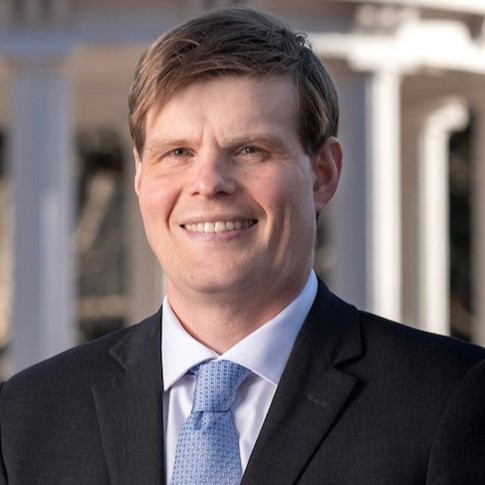
Dr. Jed Atkins
Director, Dean, and Professor in the School of Civic Life and Leadership, University of North Carolina–Chapel Hill
Jed Atkins came to the University of North Carolina–Chapel Hill in March 2024 to become the inaugural director and dean of the School of Civic Life and Leadership. Previously, he taught at Duke University, where he was director of Duke’s Civil Discourse Project and faculty director of the Transformative Ideas Program. He also chaired the classical studies department and was an associate professor of philosophy and political science. Dr. Atkins is a scholar of Greek and Roman political and moral philosophy, the history of political thought, and contemporary debates on tolerance, civility and civil discourse. He is the author of Roman Political Thought, Cicero on Politics and the Limits of Reason: The Republic and Laws, and editor (with Thomas Bénatouïl) of The Cambridge Companion to Cicero’s Philosophy. His next book, The Christian Origins of Tolerance, will be published in October 2024 by Oxford University Press.
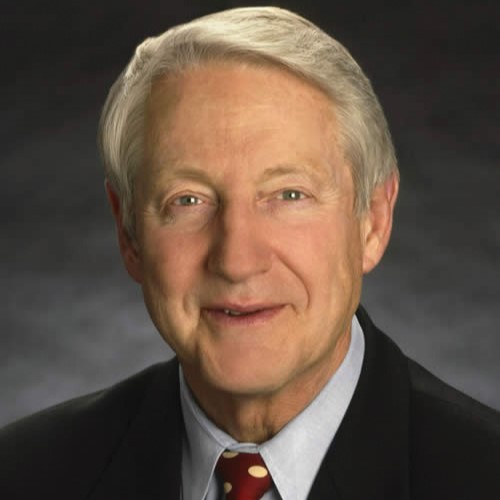
The Honorable Hank Brown
Former U.S. senator, former U.S. representative, and former president, University of Northern Colorado and the University of Colorado
Hank Brown served as president of the University of Colorado (CU) from 2005 to 2008. Under his leadership, university enrollment rebounded to an all-time record, donations increased 12%, the governance process was reformed, and externally funded faculty research increased by $51 million. He was subsequently named to the Quigg and Virginia S. Newton Endowed Chair in Leadership at CU–Boulder and was an adjunct professor in the CU Law School. From 1998 to 2002, he served as president of the University of Northern Colorado, where he reduced overhead by $7 million. In 1990, he was elected to the U.S. Senate, where he served as chairman of the Middle East Subcommittee on Foreign Relations and the Constitutional Law Subcommittee on the Judiciary. He was elected to the U.S. House of Representatives in the Fourth Congressional District in 1980, and was re-elected in 1982, 1984, 1986, and 1988 with margins ranging up to 74% of the vote. Senator Brown served in the U.S. Navy from 1862 to 1966 as an aviator and was decorated for his combat service in Vietnam. He is the co-author of Lessons and Legacies and has published over 100 articles and op-eds.

Dr. Jane E. Calvert
Founding Director and Chief Editor, The John Dickinson Writings Project
Jane E. Calvert is the founding director of the John Dickinson Writings Project, which seeks to publish everything written by the Founder during the American Revolution. She previously served as associate professor of history at the University of Kentucky for over 15 years. Her book, Quaker Constitutionalism and the Political Thought of John Dickinson, is the first work to give a comprehensive explanation of his thought, action, and contribution to the Founding of America. Her research has been sponsored by top institutions around the country, including the Newberry Library, the Huntington Library, the American Philosophical Society, the Library Company of Philadelphia/Historical Society of Pennsylvania, the David Library of the American Revolution, and the National Endowment for the Humanities. Her most recent book, Penman of the Founding, was published by Oxford University Press in 2024.
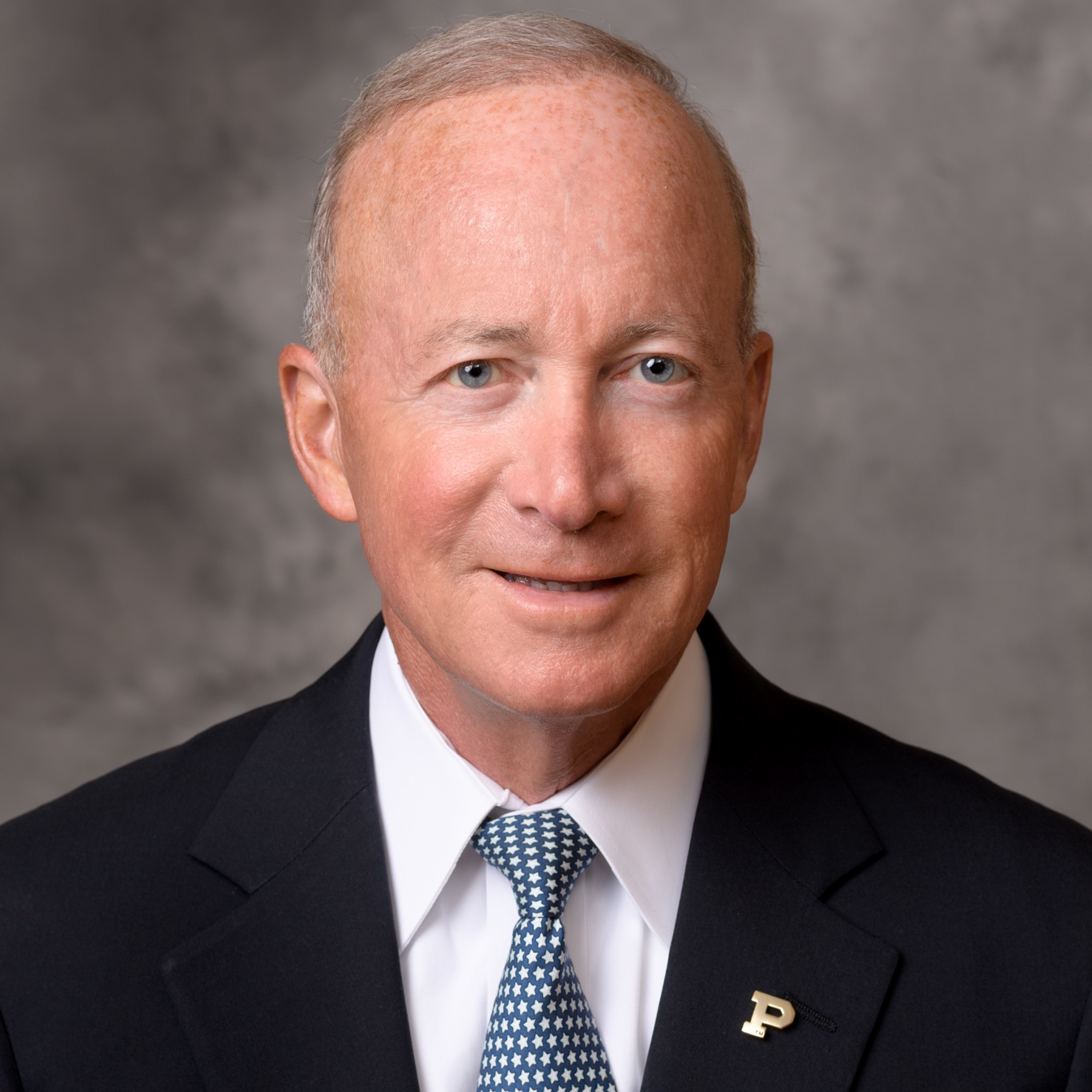
The Honorable Mitchell E. Daniels, Jr.
President Emeritus, Purdue University, and former governor of Indiana
Mitchell E. Daniels, Jr., served as governor of Indiana from 2004 to 2012 and as the 12th president of Purdue University from 2013 to 2022. He currently serves as a distinguished scholar and senior advisor at the Liberty Fund. At Purdue, Mr. Daniels froze tuition and mandatory fees at 2012 levels, a price freeze that has continued, and he spearheaded the institution of a new civic education requirement for all students. Prior to becoming governor of Indiana, he served as chief of staff to Senator Richard Lugar, senior advisor to President Ronald Reagan, and director of the Office of Management and Budget under President George W. Bush. He also was the CEO of the Hudson Institute and had an 11-year career as an executive at Eli Lilly and Company. He is a contributing columnist to the Washington Post.

Dr. Joshua Dunn
Executive Director of the Institute of American Civics, University of Tennessee–Knoxville
Joshua Dunn is the executive director of the Institute of American Civics at the Howard H. Baker School for Public Policy and Public Affairs at the University of Tennessee–Knoxville. Previously, he was the executive director of the Center for the Study of Government and the Individual at the University of Colorado–Colorado Springs, as well as professor and chair of the department of political science. His scholarship focuses on constitutional law and history, education policy, federalism, and freedom of speech and religion. Dr. Dunn’s books include The Judiciary, a volume in Teaching American History’s Core Document Collection; Complex Justice: The Case of Missouri v. Jenkins; and From Schoolhouse to Courthouse: The Judiciary’s Role in American Education.
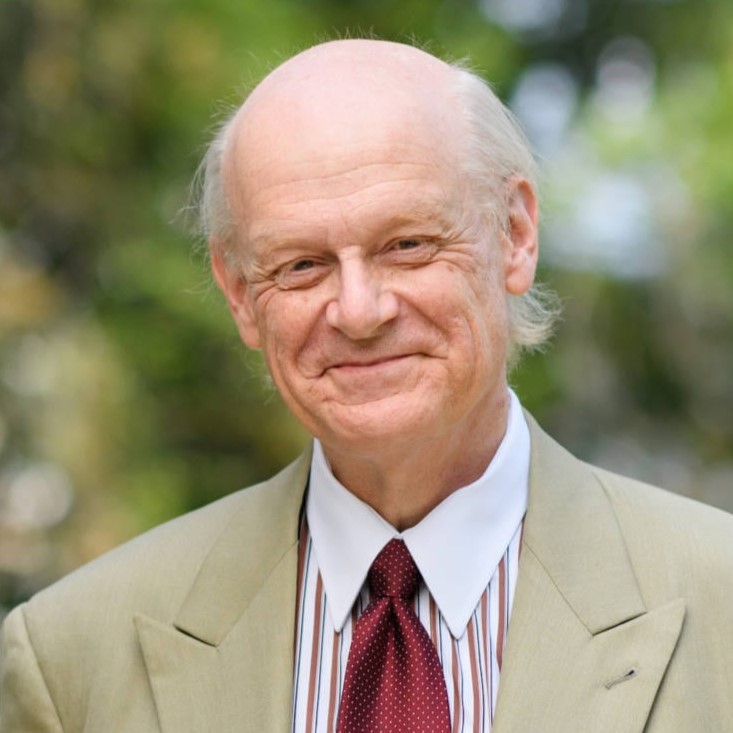
Dr. Allen Guelzo
Thomas W. Smith Distinguished Research Scholar and Director of the James Madison Program’s Initiative on Politics and Statesmanship, Princeton University
Allen Guelzo is the Thomas W. Smith Distinguished Research Scholar and director of the James Madison Program’s Initiative on Politics and Statesmanship at Princeton University. Previously, he was senior research scholar in the Council of the Humanities at Princeton and the director of Civil War Era Studies and the Henry R. Luce Professor of the Civil War Era at Gettysburg College. He is the author of Abraham Lincoln: Redeemer President; Lincoln’s Emancipation Proclamation: The End of Slavery in America; Lincoln and Douglas: The Debates That Defined America; Fateful Lightning: A New History of the Civil War and Reconstruction; Gettysburg: The Last Invasion; Redeeming the Great Emancipator; and Reconstruction: A Concise History. Among other awards, he has received the Lincoln Prize three times and the Abraham Lincoln Institute Prize twice for his books.
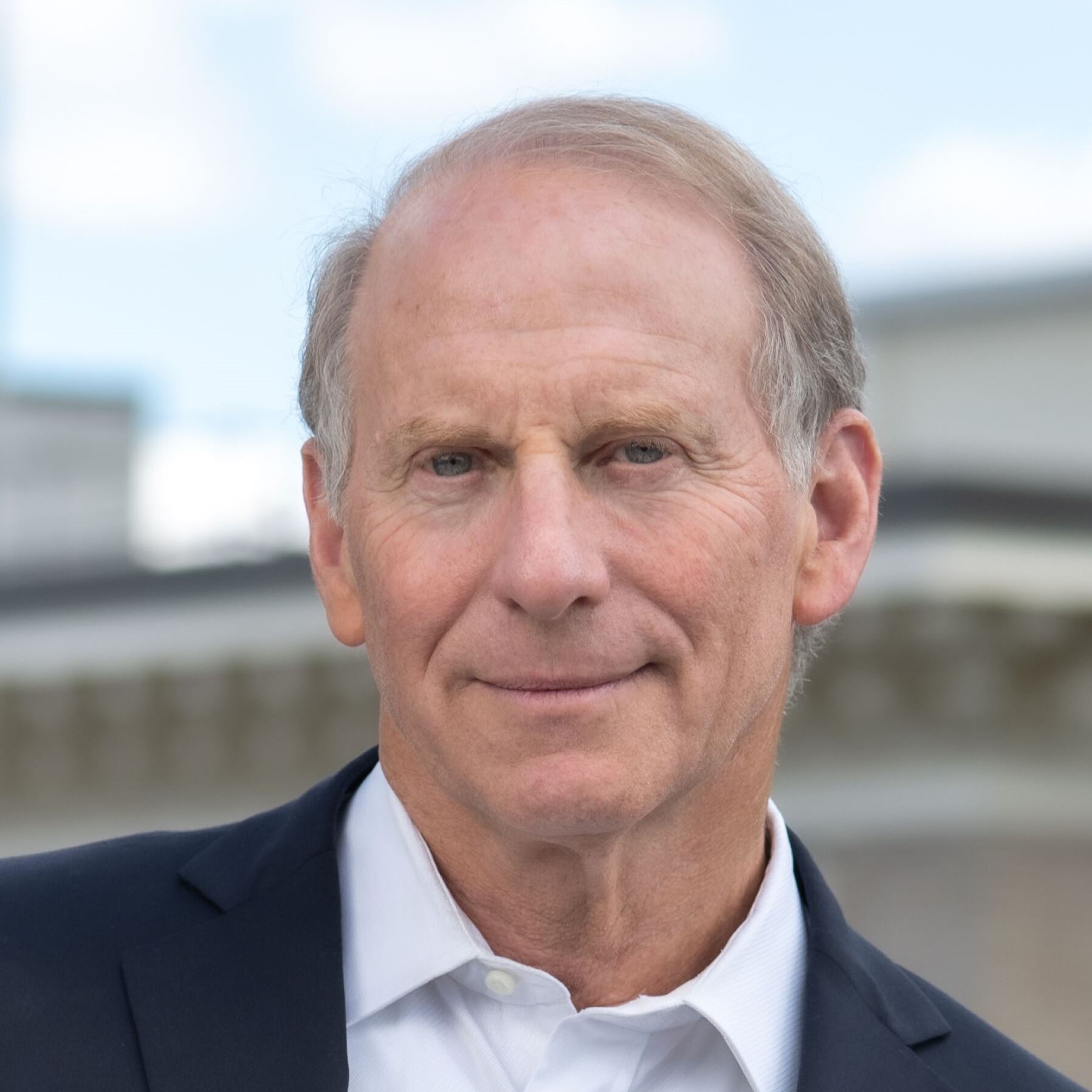
Dr. Richard Haass
President Emeritus, Council on Foreign Relations
Richard Haass, a veteran diplomat and scholar of international relations, is senior counselor with Centerview Partners, an international investment banking advisory firm. He is also president emeritus of the Council on Foreign Relations, where he served for 20 years. He previously served in the U.S. Department of State under Presidents George W. Bush and Ronald Reagan, at the White House under George H.W. Bush, and at the Pentagon under Jimmy Carter. He was U.S. envoy to the Cyprus negotiations and the Northern Ireland peace process, and after 9/11 he was U.S. coordinator for policy toward the future of Afghanistan. Dr. Haass is the author or editor of 14 books on American foreign policy, one book on management, and one on American democracy. His latest book, The Bill of Obligations: The Ten Habits of Good Citizens, was published by Penguin Press in January 2023 and became a New York Times best-seller. He is the recipient of the State Department’s Superior Honor Award, the Presidential Citizens Medal, and the Tipperary International Peace Award, as well as the Order of Diplomatic Service Merit from the Government of South Korea and the Order of the Rising Sun from the Government of Japan.

The Honorable Dr. John Hillen
James C. Wheat Jr. Professor in Leadership, Hampden-Sydney College
John Hillen is the James C. Wheat Jr. Professor in Leadership at historic Hampden-Sydney College. He is also an active adjunct professor at Duke University and George Mason University’s Costello School of Business. He has taught leadership, ethics, foreign policy, and strategy at both the undergraduate and graduate levels and has won many teaching awards. He has been the CEO of a number of companies, both public and private, and serves on the boards of several businesses, nonprofits, and charities. In 2005, he was unanimously confirmed by the U.S. Senate to serve as U.S. Assistant Secretary of State for Political-Military Affairs, and he is a decorated combat veteran. He is the author of several books in different fields of public interest, including most recently What Happens Now: Reinvent Yourself as a Leader Before Your Business Outruns You, which was recognized as one of the top business books of 2018.

Dr. Robert “KC” Johnson
Professor of History, Brooklyn College, City University of New York
Robert “KC” Johnson is a professor at Brooklyn College and the City University of New York’s Graduate Center, where he teaches courses in U.S. political, diplomatic, and constitutional history. His research focuses on the history of Congress, the U.S.-Israeli relationship, campus due process, and the Johnson administration, and he is a coeditor of several volumes of Lyndon B. Johnson’s presidential tapes. He has also served as a visiting professor at Harvard University and Fulbright Distinguished Chair in the Humanities at Tel Aviv University. He is the author or coauthor of several books, including Congress and the Cold War, “All the Way with LBJ”: The 1964 Presidential Election, Until Proven Innocent: Political Correctness and the Shameful Injustices of the Duke Lacrosse Rape Case, and The Campus Rape Frenzy: The Attack on Due Process at America’s Universities.

Dr. Wilfred McClay
Victor Davis Hanson Chair in Classical History and Western Civilization, Hillsdale College
Wilfred McClay is the Victor Davis Hanson Chair in Classical History and Western Civilization at Hillsdale College. Previously, he held the G.T. and Libby Blankenship Chair in the History of Liberty at the University of Oklahoma and was the SunTrust Bank Chair of Excellence in the Humanities, professor of history, and codirector of the Center for Reflective Citizenship at the University of Tennessee–Chattanooga. He has also taught at Tulane University, Pepperdine University, Georgetown University, and the University of Dallas. He served on the National Council on the Humanities for 11 years and is a member of the U.S. Semiquincentennial Commission, which has been charged with planning the celebration of the nation’s 250th birthday in 2026. He has been the recipient of fellowships from the Woodrow Wilson International Center for Scholars, the National Endowment for the Humanities, and the National Academy of Education. His book, The Masterless: Self and Society in Modern America, won the 1995 Merle Curti Award from the Organization of American Historians. He is also the author of The Student’s Guide to U.S. History; Religion Returns to the Public Square; and most recently, Land of Hope: An Invitation to the Great American Story.

Dr. Louise Mirrer
President and CEO, New York Historical Society
Louise Mirrer has been the president and CEO of the New-York Historical Society since 2004. Under her guidance, the society has become widely recognized as one of the nation’s premier cultural and educational resources, helping to inspire greater public understanding of history and its relevance today. Previously, she served as the City University of New York’s executive vice chancellor for academic affairs, where she led an effort to strengthen American history requirements. She has also served as vice provost of the University of Minnesota, as well as chair of the Humanities Division and curriculum program director at Fordham University. A widely published author in the fields of Spanish and Sephardic language and literature and women’s studies, she has written four books, including Women, Jews, and Muslims in the Texts of Reconquest Castile.

Dr. Roosevelt Montás
Senior Lecturer in American Studies and English, Columbia University
Roosevelt Montás is a senior lecturer in American Studies and English at Columbia University, where he also serves as director and Rene Plessner Lecturer in the Freedom and Citizenship program. He began teaching in Columbia’s English Department in 2004. From 2008 to 2018, he served as director of the Center for the Core Curriculum and associate dean of academic affairs at Columbia College. He specializes in antebellum American literature and culture, with a particular interest in American national identity. His dissertation, Rethinking America, won Columbia University’s 2004 Bancroft Award. In 2000, he received the Presidential Award for Outstanding Teaching by a Graduate Student, and in 2008, he received the Dominican Republic’s National Youth Prize. He speaks widely on the history, place, and future of the humanities in the higher education and is the author of Rescuing Socrates: How the Great Books Changed My Life and Why They Matter for a New Generation.
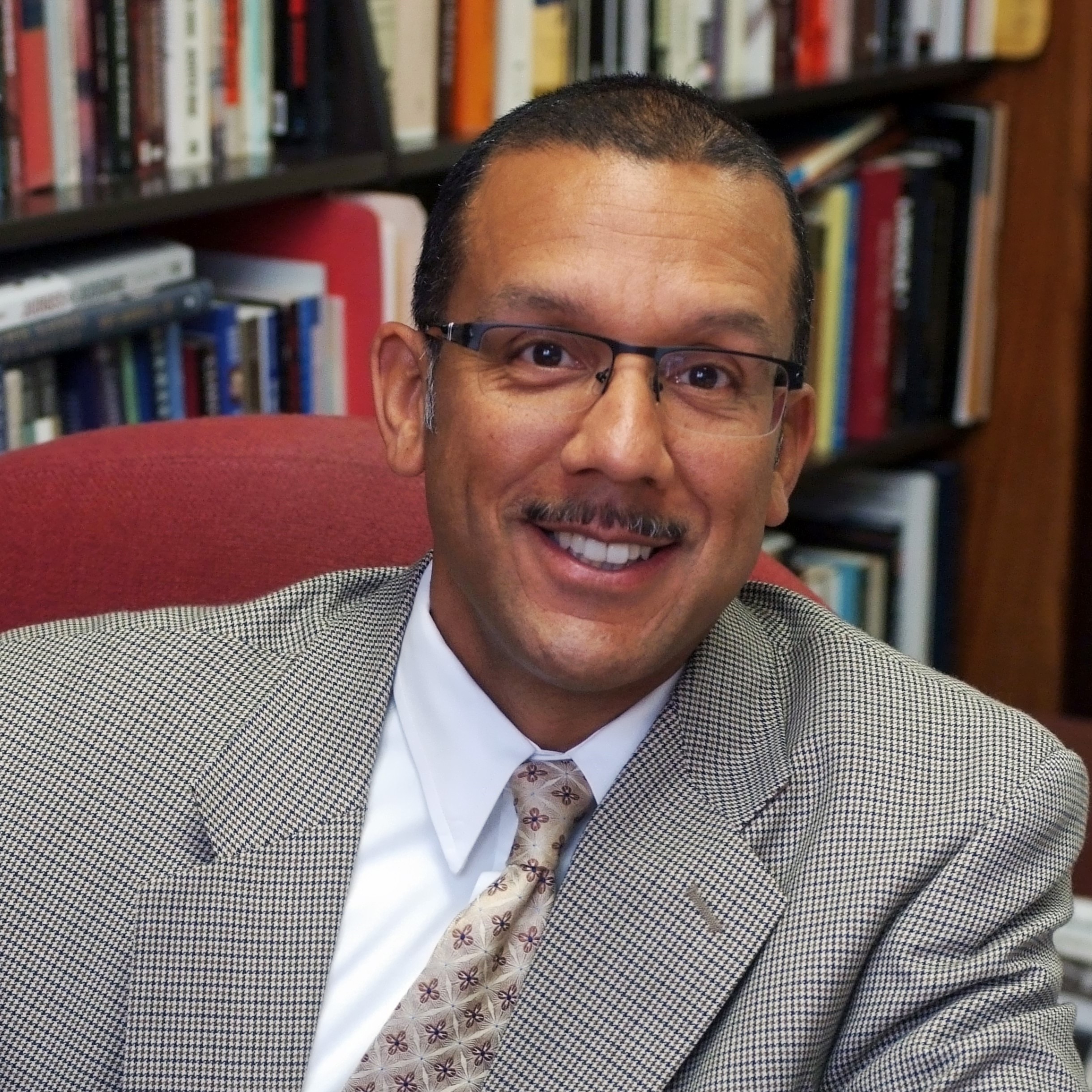
Dr. Lucas Morel
John K. Boardman, Jr. Professor of Politics and Head of the Politics Department, Washington and Lee University
Lucas Morel has taught at Washinton and Lee University since 1999. He also teaches in the summer Master’s Program in American History and Government at Ashland University in Ohio; summer programs for the Claremont Institute for the Study of Statesmanship and Political Philosophy; and high school teacher workshops sponsored by the Ashbrook Center, the Gilder-Lehrman Institute, the Jack Miller Center, the Bill of Rights Institute, and the Liberty Fund. He is the Worsham Teaching Fellow at Hillsdale College’s Van Andel Graduate School of Government. In 2008–2009, he was the Garwood Visiting Research Fellow at the James Madison Program in American Ideals and Institutions at Princeton University. Dr. Morel is a trustee of the Supreme Court Historical Society, former president of the Abraham Lincoln Institute, a consultant on Library of Congress exhibits on Lincoln and the Civil War, and was a member of the scholarly board of advisors for the Abraham Lincoln Bicentennial Commission. He currently serves on the U.S. Semiquincentennial Commission, which has been charged with planning the celebration of the nation’s 250th birthday in 2026.
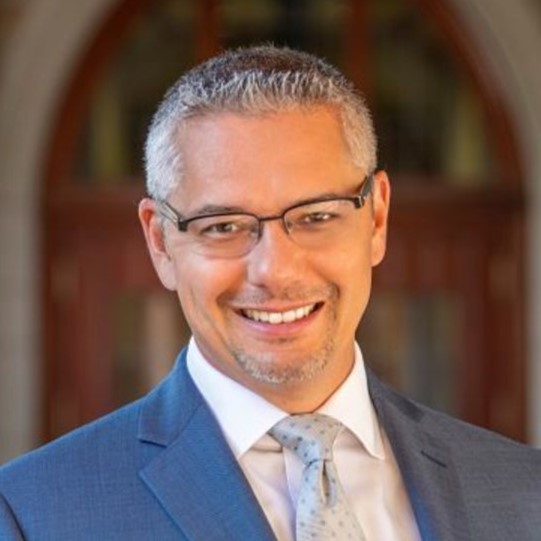
Dr. Vincent Phillip Muñoz
Tocqueville Professor of Political Science, University of Notre Dame
Vincent Phillip Muñoz is the Tocqueville Professor of Political Science and Concurrent Professor of Law at the University of Notre Dame. He is the founding director of the university’s Center for Citizenship & Constitutional Government. Dr. Muñoz writes and teaches across the fields of constitutional law, American politics, and political philosophy with a focus on religious liberty and the American Founding. He won a National Endowment for the Humanities fellowship to support his most recent book, Religious Liberty and the American Founding: Natural Rights and the Original Meanings of the First Amendment Religion Clauses. His first book, God and the Founders: Madison, Washington, and Jefferson, won the Hubert Morken Award from the American Political Science Association for the best publication on religion and politics in 2009 and 2010. His First Amendment church-state case reader, Religious Liberty and the American Supreme Court: The Essential Cases and Documents, is being used at Notre Dame and other leading universities. His scholarship has been cited numerous times in church-state Supreme Court cases, and he has lectured at nearly 100 colleges and universities.

Anne Neal
President and CEO, National Association for Olmsted Parks, and past president, American Council of Trustees and Alumni
Anne Neal is president and CEO of the National Association for Olmsted Parks, helping to protect the parks designed by Frederick Law Olmsted. Previously, she served as the president of the Garden Club of America and this year received its national medal. After serving as general counsel and congressional liaison at the National Endowment for the Humanities, she cofounded the American Council of Trustees and Alumni (ACTA). In 2003, Ms. Neal became ACTA’s second president and oversaw its growth and its focus on intellectual diversity, curricular improvement, and remedying the crisis of historical and civic ignorance. In her service as vice regent for Wisconsin and board member of the Mount Vernon Ladies’ Association, she has promoted appreciation for the life and legacy of George Washington.

Dr. Colleen Sheehan
Professor of Politics in the School of Civic and Economic Thought and Leadership, Arizona State University
Colleen Sheehan is professor of politics at Arizona State University’s (ASU) School of Civic and Economic Thought and Leadership. She has served in the Pennsylvania House of Representatives and on the Pennsylvania State Board of Education. She is the recipient of the Earhart Fellowship, Bradley Fellowship, National Endowment for the Humanities Fellowship, Mary and Kennedy Smith Fellowship and Garwood Fellowship of the James Madison Program at Princeton University, the Claremont Institute’s Henry Salvatori Prize, and the Martin Manley Teacher of the Year Award at Villanova University, where she taught for over 30 years before joining the faculty at ASU. Dr. Sheehan is author of James Madison and the Spirit of Republican Self-Government, The Mind of James Madison: The Legacy of Classical Republicanism, coeditor (with Gary L. McDowell) of Friends of The Constitution: Writings of the “Other” Federalists of 1787-88, and coeditor (with Jack Rakove) of The Cambridge Companion to The Federalist.
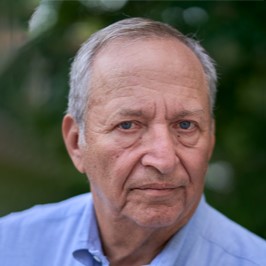
Dr. Lawrence H. Summers
Charles W. Eliot University Professor and President Emeritus, Harvard University
Lawrence H. Summers is currently the Charles W. Eliot Professor at Harvard University and the Weil Director of the Mossavar-Rahmani Center for Business & Government at Harvard’s Kennedy School. He served as Harvard’s president from 2001 to 2006, strengthening general education standards, increasing study abroad programs and faculty-student contact, and removing all financial obligation from students with family incomes below $60,000 a year. He served as the 71st Secretary of the Treasury in the Clinton administration, director of the White House National Economic Council in the Obama administration, and the chief economist of the World Bank. Recognized as one of the world’s most influential thinkers by Time, Foreign Policy, Prospect, and The Economist, Dr. Summers has published more than 150 papers in scholarly journals and is a contributing columnist to the Washington Post. He was the first social scientist to receive the National Science Foundation’s Alan Waterman Award for scientific achievement, and he was awarded the John Bates Clark Medal in 1993.
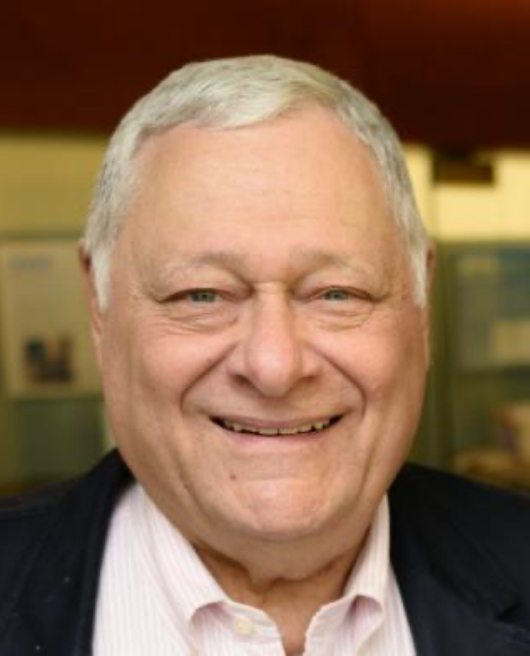
Dr. Stephen Joel Trachtenberg
University Professor Emeritus and President Emeritus, George Washington University
Stephen Joel Trachtenberg served as The George Washington University’s 15th president for nearly two decades and before that as president of the University of Hartford for 11 years. Prior to the presidency of Hartford, Dr. Trachtenberg served for eight years at Boston University as vice president for academic services and academic dean of the College of Liberal Arts. Earlier, in Washington, DC, he was a special assistant to the U.S. Education Commissioner. Dr. Trachtenberg is a past chairman of the Atlantic 10 Conference Presidents Council and remains a member of the council. He is also a member of the Council on Foreign Relations, a fellow of the American Academy of Arts and Sciences, and has received 25 honorary doctoral degrees. His books include Big Man on Campus: A University President Speaks Out on Higher Education and Leading Colleges and Universities: Lessons from Higher Education Leaders.
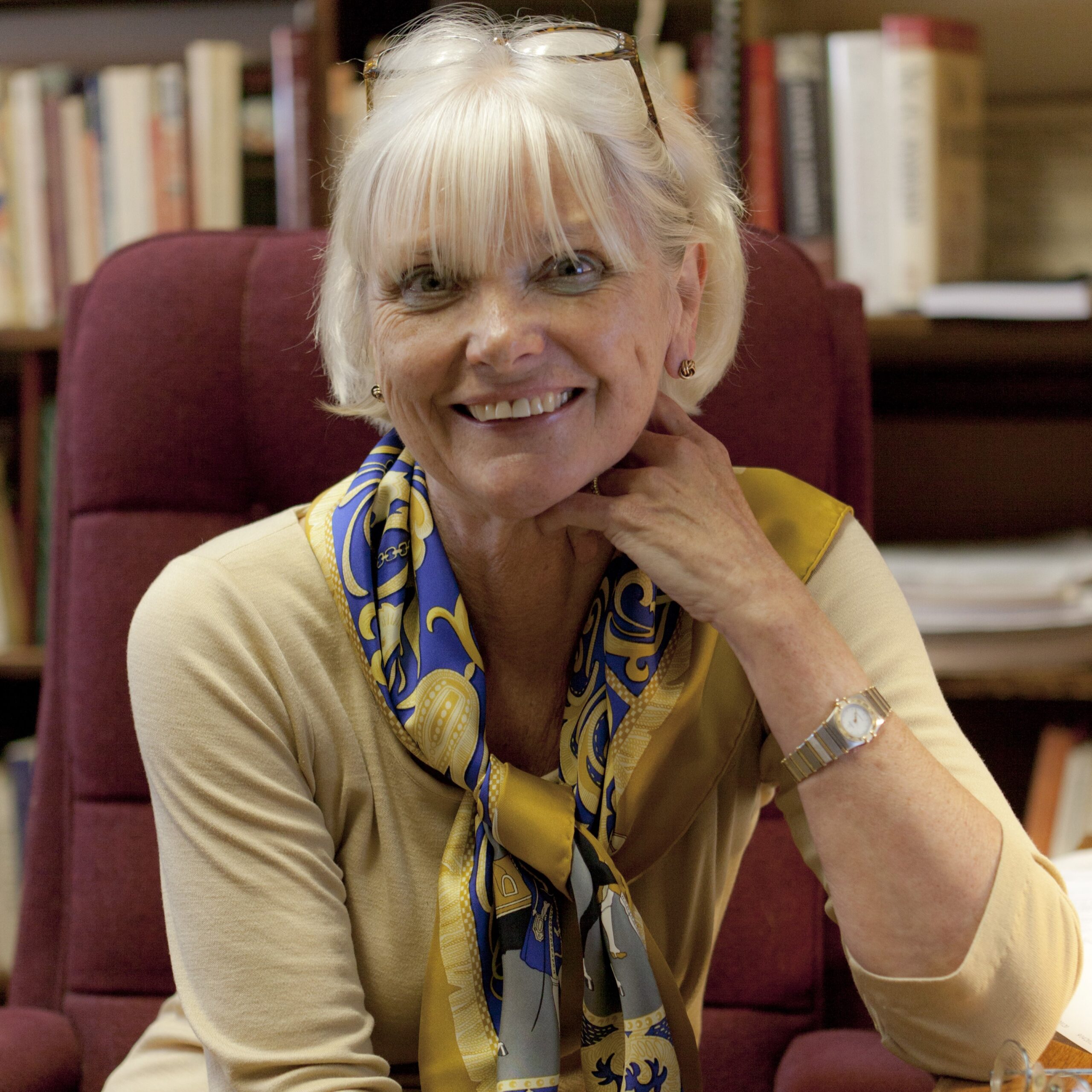
Dr. Jean Yarbrough
Gary M. Pendy Sr. Professor of Social Sciences, Bowdoin College
Jean Yarbrough is professor of government and Gary M. Pendy, Sr. Professor of Social Sciences (on leave for the 2024–2025 academic year) at Bowdoin College. She is a scholar of American political thought and public policy, and her current research involves a study of the political thought of Alexis de Tocqueville in relation to major American political figures. She was a Woodrow Wilson Dissertation Fellow and has twice received research fellowships from the National Endowment for the Humanities. She is the author of American Virtues: Thomas Jefferson on the Character of a Free People and the editor of The Essential Jefferson. Her 2012 book, Theodore Roosevelt and the American Political Tradition, won the Richard E. Neustadt Award presented annually by the American Political Science Association for the best book on the presidency. She has served on the editorial board of The Review of Politics and Polity and currently serves on the editorial board of American Political Thought.
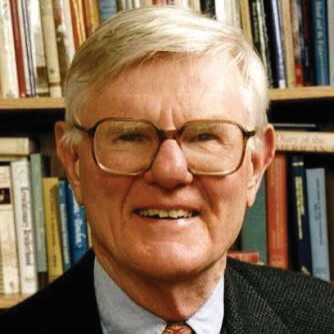
Dr. Gordon S. Wood
Alva O. Way University Professor and Professor of History Emeritus, Brown University
Gordon S. Wood, Alva O. Way University Professor and Professor of History Emeritus at Brown University, is a renowned scholar of the American Revolution and the formation of the American Republic. Over his distinguished career, he has served on the faculty of Brown University, Harvard University, the University of Michigan, William & Mary, and Cambridge University. In 1993, he won the Pulitzer Prize for history and the Ralph Waldo Emerson Prize for his book, The Radicalism of the American Revolution. In 1970, he received the Bancroft Prize and the John H. Dunning Prize for The Creation of the American Republic, 1776–1787. His other works include The Americanization of Benjamin Franklin, Revolutionary Characters: What Made the Founders Different, and The Purpose of the Past: Reflections on the Uses of History. His volume in the Oxford History of the United States, entitled Empire of Liberty: A History of the Early Republic, 1789–1815, was given the Association of American Publishers Award for U.S. History and Biography in 2009. His numerous honors and awards include a Guggenheim Fellowship, the 2010 National Humanities Medal, the Churchill Bell, the Arthur M. Schlesinger Jr., Award from the Society of American Historians, and the John F. Kennedy Medal from the Massachusetts Historical Society.

Dr. Jonathan Zimmerman
Judy and Howard Berkowitz Professor in Education, University of Pennsylvania Graduate School of Education
Jonathan Zimmerman came to the University of Pennsylvania’s Graduate School of Education, where he currently serves as the Judy and Howard Berkowitz Professor in Education, after 20 years at New York University (NYU). He served as chair of the Department of Humanities and Social Sciences in NYU’s Steinhardt School of Culture, Education, and Human Development, and he received NYU’s Distinguished Teaching Award. His work examines how education practices and policies have developed over time. A former Peace Corps volunteer and high school teacher, he is a frequent contributor to the New York Times, the Washington Post, the New York Review of Books, and other popular newspapers and magazines. He has received book and article prizes from the American Educational Research Association, the Society for Historians of the Gilded Age and the Progressive Era, and the History of Education Society, where he served as president in 2009–2010. He is coeditor of the Histories of American Education book series and is the author of Whose America? Culture Wars in the Public Schools; The Amateur Hour: A History of College Teaching in America; and Free Speech, and Why You Should Give a Damn.
ACTA
RESOURCES
VOICES ON
CIVICS
WHO WE ARE
Launched in 1995, we are the only organization that works with alumni, donors, trustees, and education leaders across the United States to support liberal arts education, uphold high academic standards, safeguard the free exchange of ideas on campus, and ensure that the next generation receives an intellectually rich, high-quality college education at an affordable price.
Discover MoreSTAY INFORMED
Sign up to receive updates on the most pressing issues facing our college campuses.

